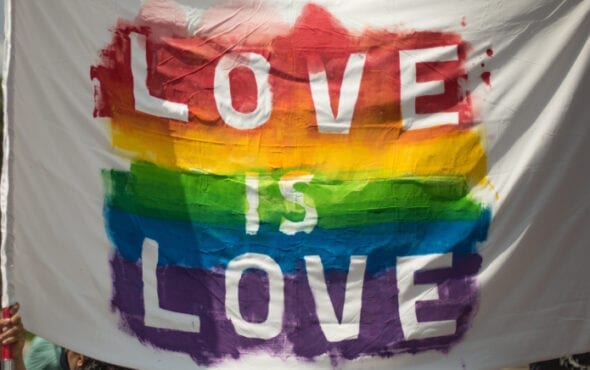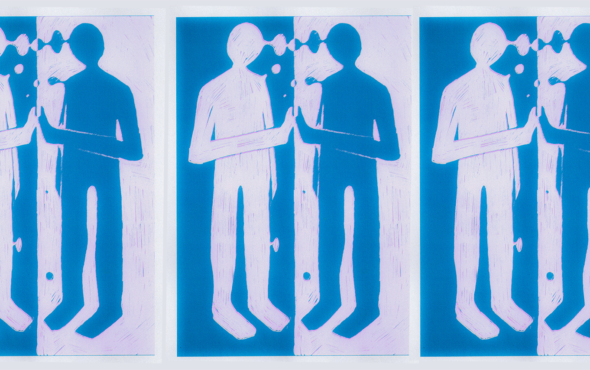
A Ghanaian bill criminalising LGBTQ+ people has been criticised as “state-sponsored discrimination and violence” against sexual minorities.
On August 12, a group of United Nation human experts condemned an anti-LGBTQ+ bill and appealed to Ghana’s government to repeal the proposed legislation.
The Promotion of Proper Human Sexual Rights and Ghanaian Family Values Bill was condemned by Victor Madrigal-Borloz, the independent U.N. expert on LGBTQ issues, and 11 of his colleagues.
The controversial bill, which has already been introduced in the Ghanaian Parliament, states that “any person who deviates from an arbitrary standard of sexual orientation or gender identity is immediately to be considered dangerous, sick or anti-social.”
In a press release, Madrigal-Borloz and his colleagues continued to criticise the bill, arguing it “promotes harmful practices that amount to ill-treatment and are conducive to torture, such as so-called ‘conversion therapy’ and other heinous violations like unnecessary medical procedures on internet children, and so-called corrective rape for women.”
Madrigal-Borloz and nine other U.N. human rights experts have continued to appeal to Ghana’s mission to the U.N. in Geneva, via a letter, to express the dangers the bill will present to LGBTQ+ communities in Ghana.
“We express our grave concern about the draft bill, which seems to establish a system of state-sponsored discrimination and violence against LGBTI persons of great magnitude. As such, the bill appears to constitute an immediate and fundamental breach of Ghana’s obligations under international human rights law,” said the letter, published August 9.
The letter continued: “We express our grave concern about the draft bill, which seems to establish a system of state-sponsored discrimination and violence against LGBTI persons of great magnitude
“Given that LGBTI people are present in every family and every community, it is not very difficult to imagine how, if it were to be adopted, this legislation could create a recipe for conflict and violence.”
LGBT+ people face widespread persecution in the West African nation where gay sex is punishable with up to three years imprisonment. However, the newly considered bill would include a penalty of five years for being LGBTQ+ and 10 years for supporting LGBTQ+ rights.
In 2018, The Human Rights Watch issued a report that documented violence and discrimination against LGBTQ+ people in Ghana.
The report uncovered that homosexuality is banned under the Criminal Offences Act, however, the laws are believed to be a result of colonial legacy and are rarely enforced.
Last week, a Ghanaian court dismissed a cause charging 21 protesters for assembling at a pro-LGBTQ+ event due to insufficient evidence.
In May, 16 women and five men were arrested, in the city Ho, for “participating” in an LGBTQ+ friendly conference.
Chief Superintendent of Police Yakubu Ayamga, a police prosecutor, said there was not enough evidence to go ahead with prosecution.
“What this means is that they cannot be brought back to court on the same charges. So they have been freed,” Ayamga told Reuters.
“The court dismissed the case today based on the opinion (of the attorney general) and the 21 people were acquitted,” he told Africa News.
Julia Ayertey, the attorney for the 21 arrestees, confirmed the ruling while speaking to the African news outlet.
“We welcome the decision, which has always been our line from the beginning of this case,” she said.
Rightify Ghana, a human rights organization in Ghana, took to Twitter to celebrate the news and elaborate on the unfolding case.
“A Ho Circuit Court has dismissed the case against the 21 human rights defenders and participants of a paralegal training, who were arrested on May 20 for “unlawful assembly” and detained for 22 days by the police, after multiple bails were turned down,” Rightify Ghana posted.
The account added: “According to the prosecutors, the Attorney General has said that they do not have enough evidence to prosecute the 21 persons. Consequently, the judge dismissed the case against them
“More importantly, the risk of them being prosecuted by Ghana’s far-reaching anti-LGBTQ bill, if passed, is no more. They are now free to live and continue with their lives. Most of them have lost homes, employment, friends and families as a result of this case.”
Update on #ReleaseThe21
A Ho Circuit Court has dismissed the case against the 21 human rights defenders and participants of a paralegal training, who were arrested on May 20 for "unlawful assembly" and detained for 22 days by the police, after multiple bails were turned down. pic.twitter.com/2ZJSK7A6Z3
— Rightify Ghana (@RightifyGhana) August 5, 2021



